Analytical thinking Normal Reading Comprehension Worksheets for Ages 6-8
6 filtered results
-
From - To
Discover our engaging "Analytical Thinking Normal Reading Comprehension Worksheets" tailored for children aged 6-8. These worksheets are designed to enhance critical thinking skills while fostering a love for reading. Each activity encourages kids to analyze texts, make connections, and draw conclusions, strengthening their comprehension abilities. Ideal for classroom use or at-home learning, our worksheets provide varying levels of complexity to suit every young learner’s needs. Encourage your child to think deeply and creatively as they explore themes, characters, and key events in fun, interactive ways. Promote analytical skills that will benefit them across all subjects with our thoughtfully crafted resources!
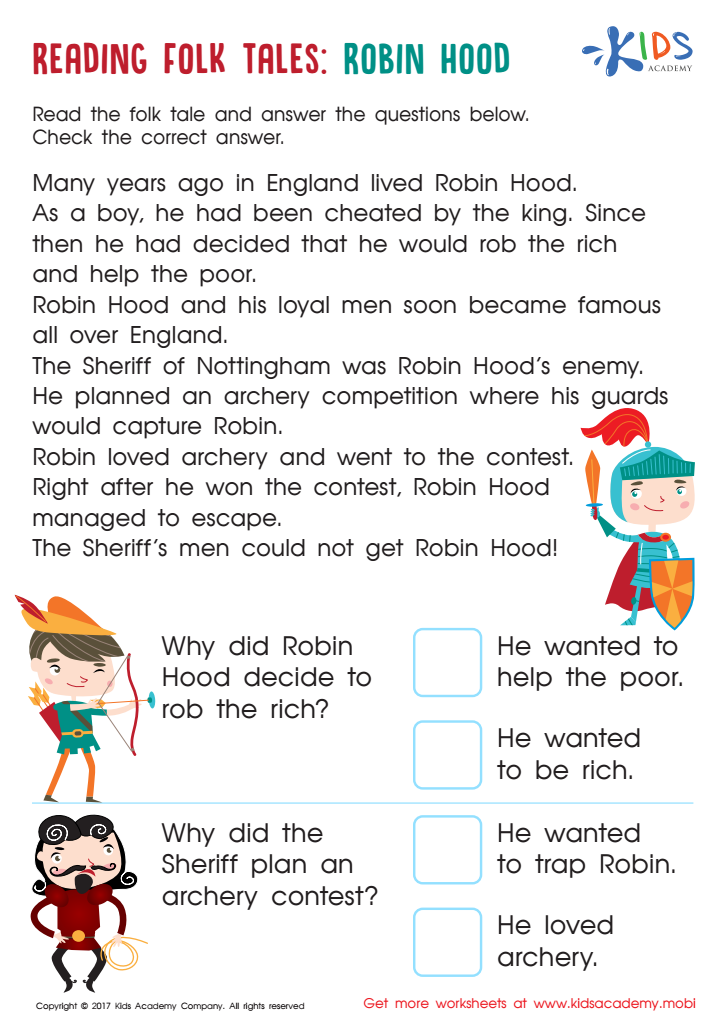

Robin Hood Folktale Worksheet
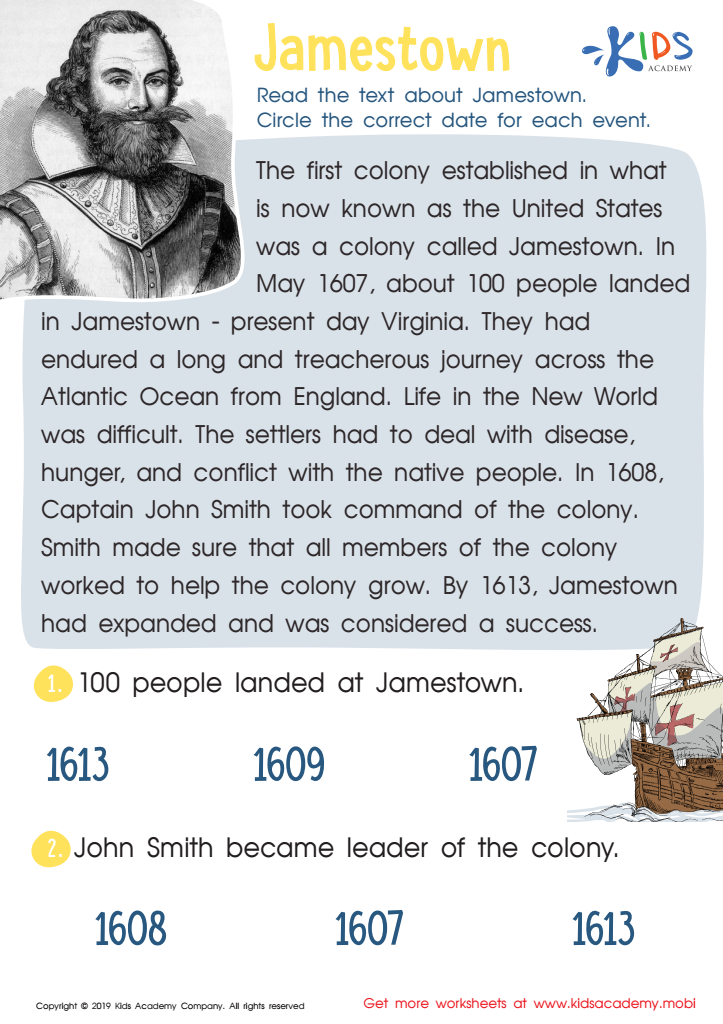

Jamestown Worksheet
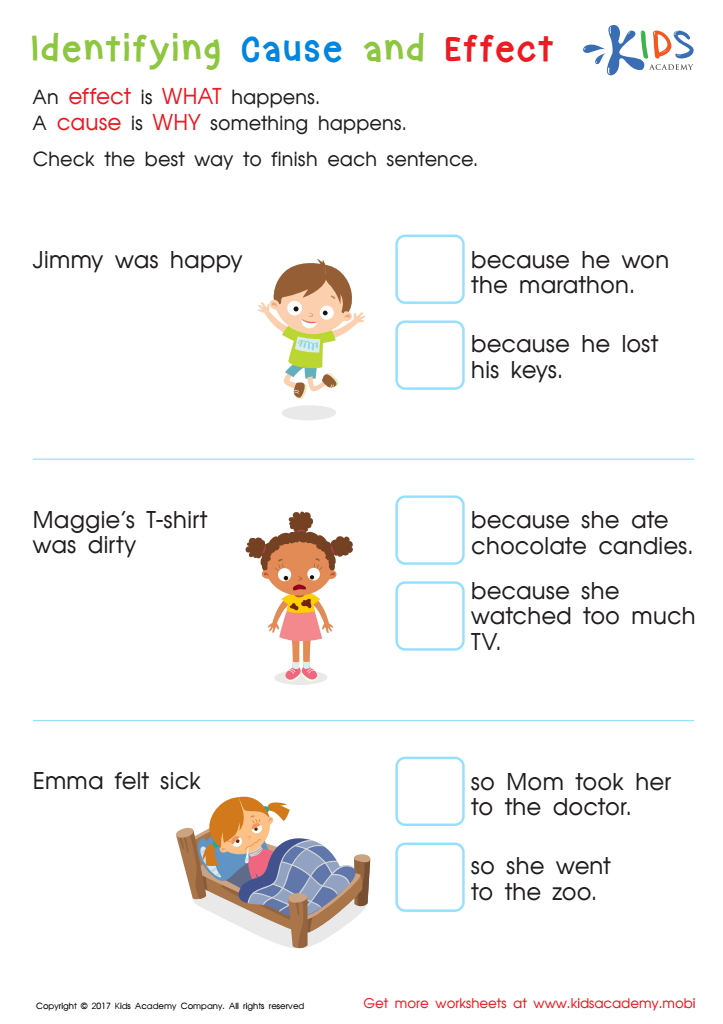

Indentifying Cause and Effect Worksheet
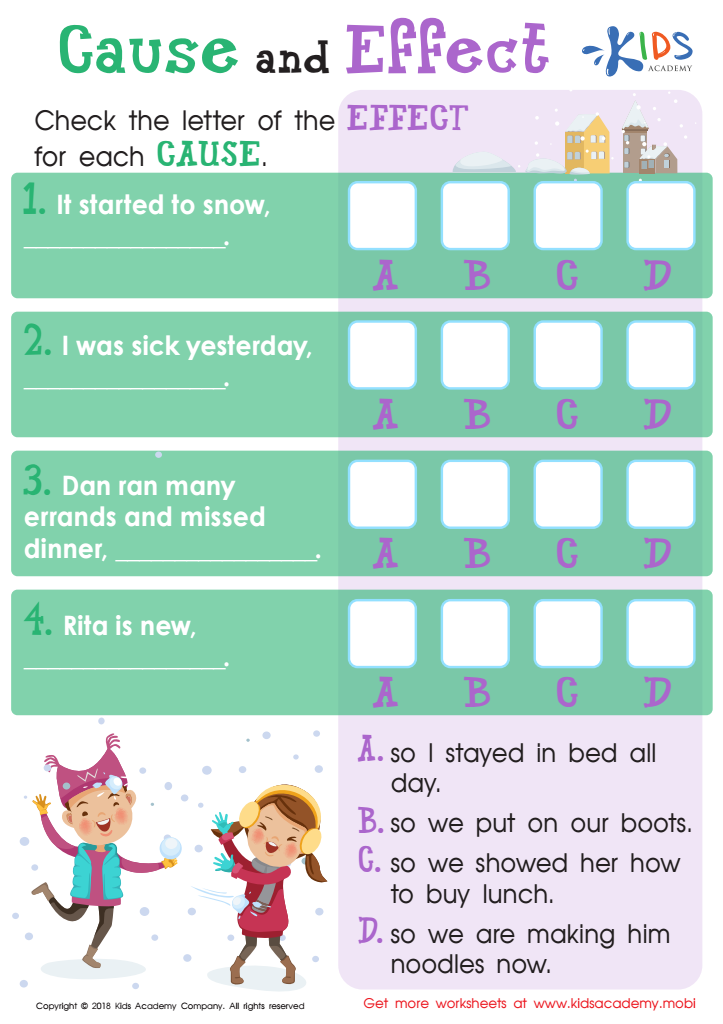

Cause and Effect Worksheet
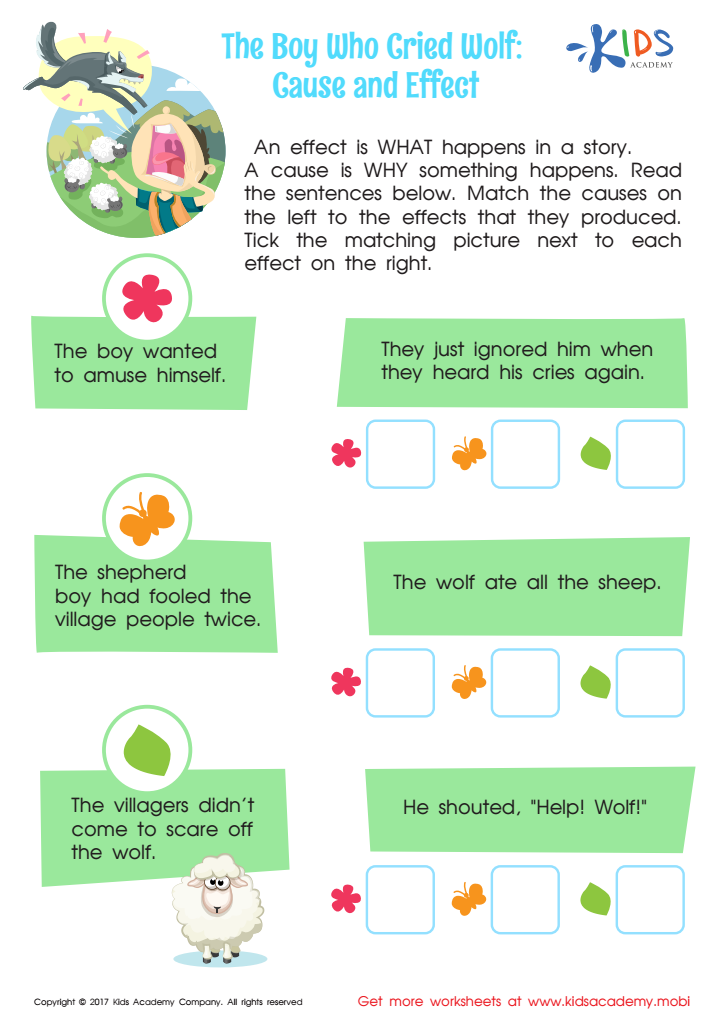

The Boy Who Cried Wolf: Cause and Effect Worksheet
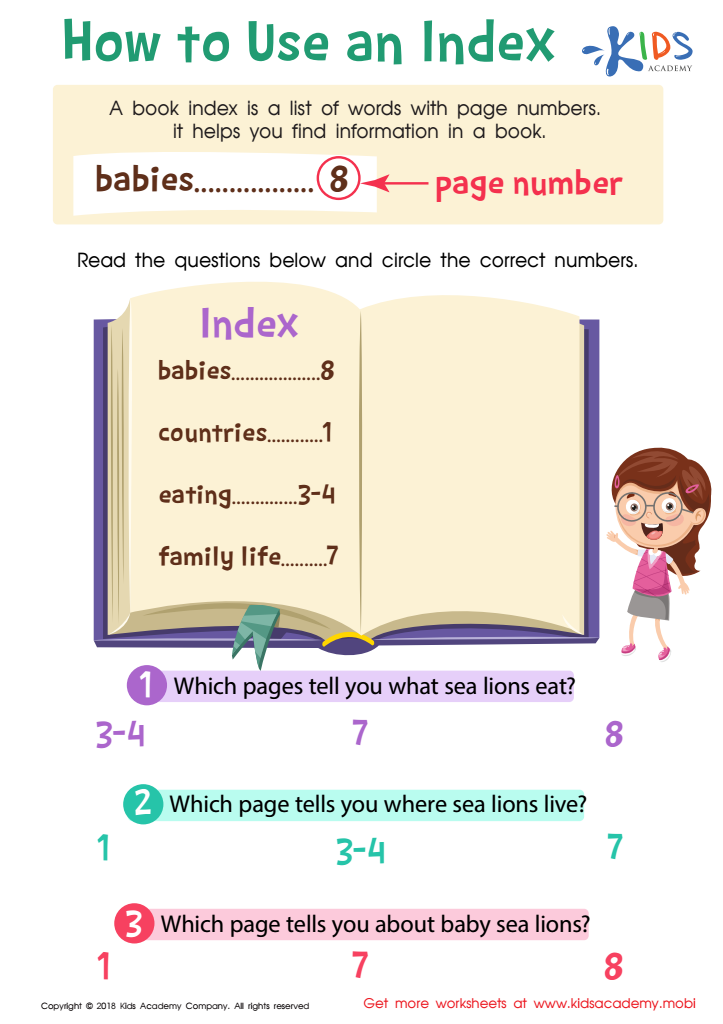

How Use Index Worksheet
Analytical thinking and reading comprehension are critical skills for children aged 6-8, forming the foundation for lifelong learning. During this developmental stage, children are not only absorbing knowledge but also learning to evaluate and synthesize information. Analytical thinking encourages kids to ask questions, make connections, and solve problems, which enhances their ability to interpret texts and understand underlying themes, characters, and intentions in stories.
Moreover, strong reading comprehension skills serve as a gateway to other academic disciplines, such as math and science, where understanding complex concepts often hinges on interpreting written material. When parents and teachers prioritize fostering these skills, they equip children with the tools to process information critically, ultimately preparing them for a variety of challenges.
Additionally, engaging in reading activities promotes vocabulary development and encourages curiosity—qualities essential for academic success. By creating a supportive environment where analytical thinking is practiced alongside reading, parents and teachers can help kids develop confidence in their abilities, instilling a love for learning that can last a lifetime.
In short, nurturing analytical thinking and reading comprehension lays the groundwork for intellectual growth, fosters effective communication, and prepares children to navigate an increasingly complex world.
 Assign to My Students
Assign to My Students





















